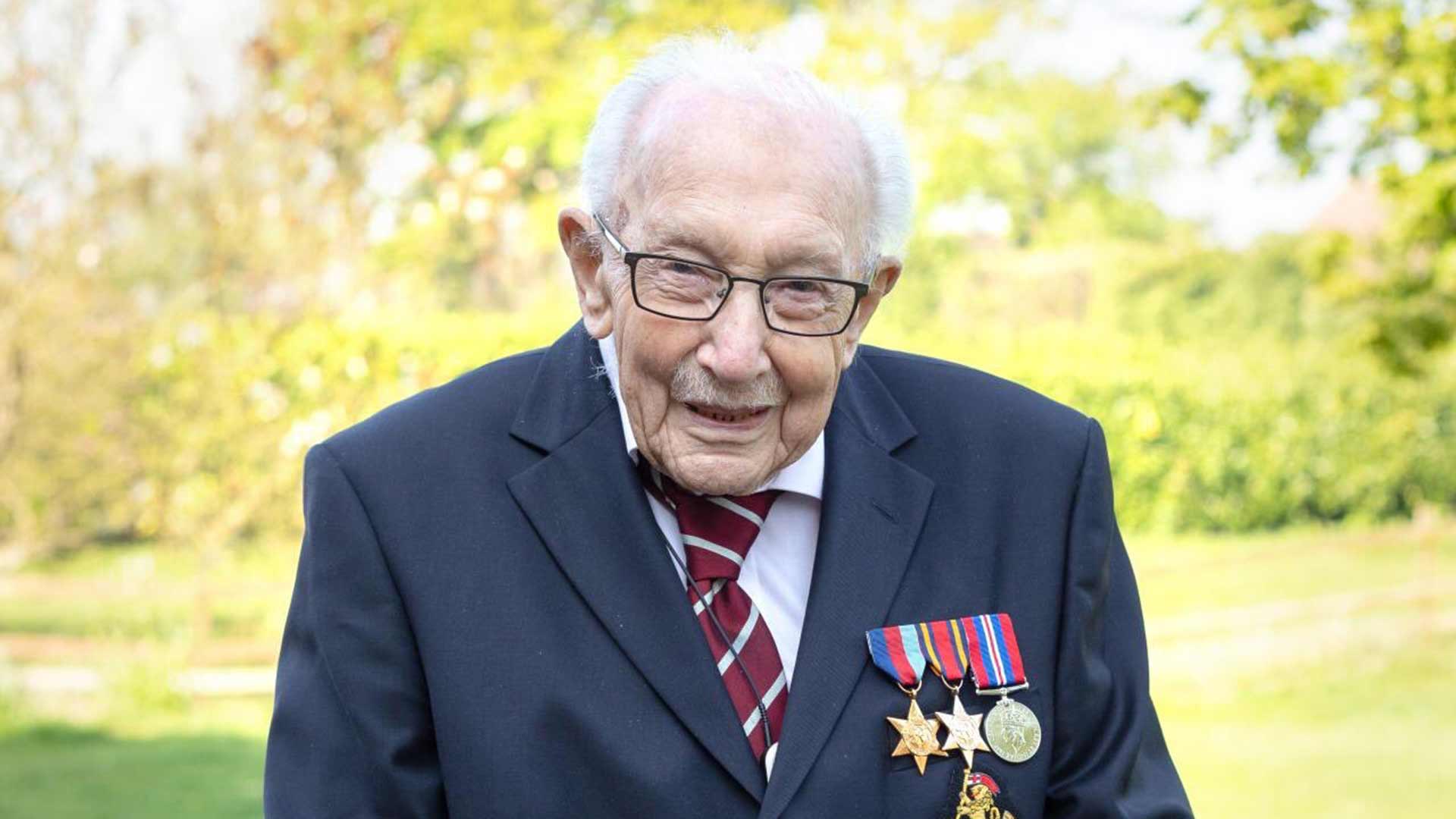You are viewing your 1 free article this month. Login to read more articles.
Sales of Captain Sir Tom Moore's books 'did not go towards the fundraiser's charity', investigation finds
The Charity Commission’s investigation into The Captain Tom Foundation has found that sales of the late fundraiser Captain Sir Tom Moore’s autobiography, Tomorrow Will Be a Good Day (Michael Joseph), and the children’s book One Hundred Steps (Puffin), did not go towards benefiting the charity, despite a press release implying that donations would be made.
The publishing agreement was initially for four books and included an advance of £1.5m, which was reduced to £1.47m after the fourth book was cancelled. However, the press release referred only to the first two titles.
The inquiry criticised the family’s handling of and communications around publishing deals for Captain Moore’s books, concluding that people "would understandably feel misled" following this news.
The report is "highly critical" of the charity’s former trustee and c.e.o. Hannah Ingram-Moore and former trustee Colin Ingram-Moore, who "repeatedly benefited" from the "mismanaged" charity, citing failures to act in the best interests of the charity and to manage conflicts of interest.
The document is also critical of the handling of intellectual property rights owned by the Ingram-Moore family being offered to the charity for their use without "appropriate agreements" in place, which led to the charity possibly suffering financial losses.
The pair have been disqualified from serving as charity trustees as a result of benefiting personally from the foundation.
The report outlines the statement provided by Penguin Books’ legal department: "During negotiations with literary agent, Bev James, on behalf of Captain Tom and his family for the book deal in April 2020, Penguin Random House (PRH) offered to pay a proportion of the advance direct to NHS Charities Together. However, this offer was refused and PRH was informed that the family wanted the whole advance paid directly to them, with no payment to NHS Charities Together."
The statement added: "The family indicated that instead, they would use part of the advance to help facilitate the creation and launch of a new charity (which would become The Captain Tom Foundation). Therefore, there was an informal understanding that the family was planning to use part of the advance to set up and launch a new charity, although no binding agreement was entered into with the family in this regard."
James, the literary agent representing Captain Moore, said that his "understanding is that Hannah and Colin were very clear that they did not want the money from the books to go to charity, but they would make a donation when the Captain Tom Foundation was set up".
In a statement sent to The Bookseller, PRH said: “We respect and have complied with the process of the Charity Commission inquiry. In 2020 we entered into a publishing agreement in good faith and, as the report notes, this was on the understanding that a donation would be made to help facilitate the creation and launch of a new charity.
"We are extremely disappointed to read the findings of the report which indicate that this was not the case. However, Captain Sir Tom Moore offered hope to many during a time of unprecedented uncertainty, and we remain proud to have had the opportunity to help him tell the story of his inspirational and remarkable life.”
In addition, the report is also critical of the charity’s "unconflicted trustees" and the administration of the charity but concludes that this did not warrant any further regulatory action.
“Captain Sir Tom inspired a nation and reminded us what service to others can achieve even in the most challenging of times," said David Holdsworth, c.e.o. of the Charity Commission. “Sadly, however, the charity set up in his name has not lived up to that legacy of ’others before self’, which is central to charity. Our inquiry report details repeated failures of governance and integrity."
Holdsworth added: “The public–and the law–rightly expect those involved in charities to make an unambiguous distinction between their personal interests, and those of the charity and the beneficiaries they are there to serve. This did not happen in the case of The Captain Tom Foundation. We found repeated instances of a blurring of boundaries between private and charitable interests, with Mr and Mrs Ingram-Moore receiving significant personal benefit. Together the failings amount to misconduct and/or mismanagement."
















